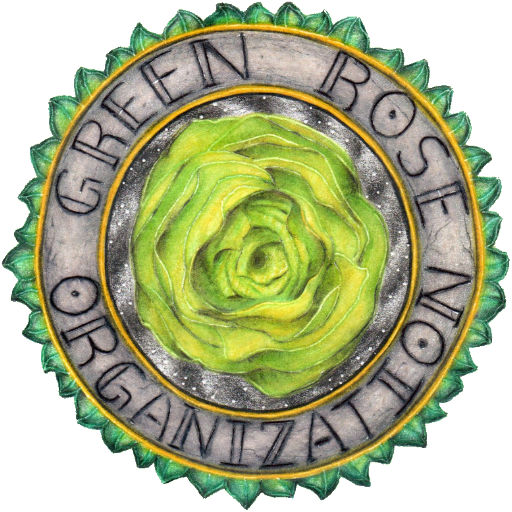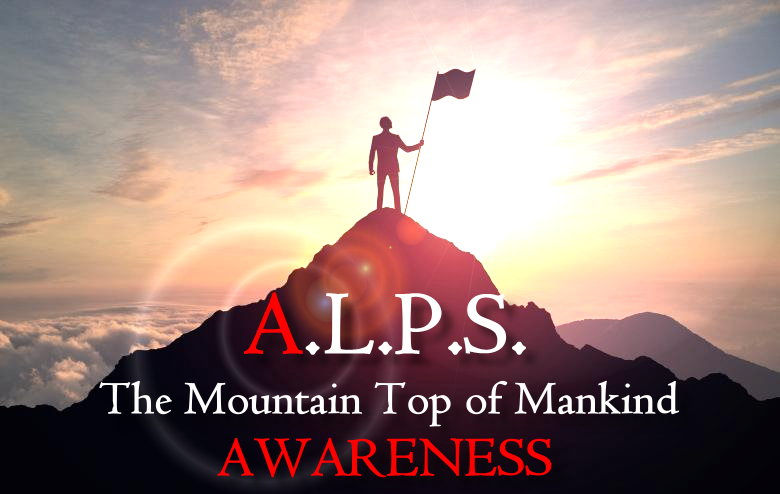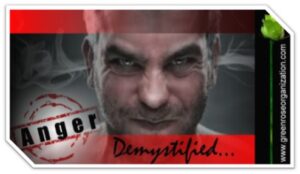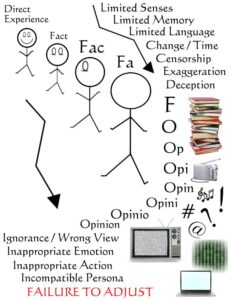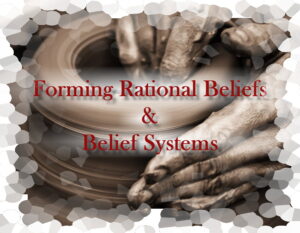A.L.P.S.
THE MOUNTAIN TOP OF MANKIND
AWARENESS
By Shawn Malzahn
Hills can be tall but mountains are taller, yet nothing can compare to the “Mountain Top of Mankind”, the A.L.P.S., or should I say, Awareness, Love, Patience and Service. These are the moral principles that if integrated within one’s character, will go on to serve as a rock-solid foundation capable of holding one upright with supreme righteousness, that is to say, thinking, speaking, and behaving in accordance to what is just, honorable, and free from the sense of guilt and wrongdoing. In this lesson, we will attempt to define and discuss the utility and practicality of the “A” in A.L.P.S., which stands for awareness. We will then explore various ways in which we can internalize and exemplify awareness’s innate characteristics. Lastly, we will conclude by summarizing what we have learned.
As we begin to ascend the “Mountain Top of Mankind”, that is to say, as we begin to develop our characters, we should first arrive at the base level of awareness, the “A” in A.L.P.S. It is here that we must recognize the limitations of our self-knowledge. Let’s be honest, we rarely take the time to actually sit and reflect upon the various subtleties of our characters and personalities. This is why I’m confident in saying that our self-knowledge is usually very limited. How often do we actually sit and observe the thoughts that we think on a daily basis, let alone contemplate the reasons for having such thoughts, as well as the ramifications that come along with having them? How often do we contemplate the nature and origin of our feelings, and how often do we come to the awareness of their ability to significantly impact the quality and condition of our bodies and behaviors? Probably not that often, and if we do, we most likely stop here at the base level of awareness, failing to take any course of positive action in regard to what we have learned about ourselves. This is a problem, because awareness without ACTION is like having a detailed treasure map, but yet never taking a single step toward actually discovering the rewards one could reap, if they were to move oneself according to its instruction. Just as well, we can have all the self-knowledge in the world, and still fail to evolve ourselves mentally, morally, and mannerly, if we choose to do nothing about it. This is why awareness (specifically self-awareness) must be coupled with action if we should ever hope to experience positive change in life.
Awareness is that faculty of mind that allows us to experience all the various sense-objects within our field of perception, and without it, we cannot know, nor understand, anything at all within our physical and psychical environments whatsoever. For example, we have eyes that can see, and we have tongues that can taste, and we have ears that can hear, but without the power of awareness, there will be no forms to see, nor flavors to taste, or sounds to be experienced within our streams of consciousness. That is not to say that these entities cease to exist in their entirety, but rather, our ability to know, understand, experience, and interact with them, is what ceases to exist in its entirety. The same is true not only for the sense-objects of our physical environments, but also for that of the mental constructs and processes of our mental environments as well. That is to say, without the power of awareness, we cannot come to know, understand, experience, and interact with our innermost thoughts and feelings. Therefore, how can we ever hope to take positive action in the course of developing our characters? We CANNOT. Thus, we must come to appreciate the power of awareness as a divine gift, because without it, we wouldn’t be able to know that we even exist in the first place!
Now that we understand more about the utility and practicality of awareness’s awesome power to “know” (because that what awareness does, it allows us to know things) let us now discuss various ways in which we can begin taking positive action in the direction of personal growth and development, based on what it is that we can come to “know” about ourselves. The only best way I know to do this is by keeping an “awareness journal”, or essentially, writing down all of the feelings, thoughts, and behaviors one has exhibited throughout the course of a day, EACH AND EVERY NIGHT. We have to understand that our minds and bodies are constantly active, even when we are asleep, e.g., dreams, and because of this, there will be constant feelings to be felt each and every day, all the time. Thus, we ought to make sure that the activities of our minds and bodies are leading to positive feelings, as opposed to negative, because at the end of the day, we all want to feel good, right? So why not start with a simple question, “How am I feeling right now?” This opens the door for us to begin looking inside ourselves. Essentially, we are looking to identify any emotional energy that may be causing us some sort of discomfort. It is here that we would be best suited if we were to have an extensive emotional vocabulary. An emotional vocabulary full of “feeling words” that we can use to communicate exactly what it is that we are experiencing. This simple act of communication our feelings accurately with great detail to another human being, is, in and of itself, therapeutic. It is as if we are literally sharing our burden with the other person, reducing the intensity of our own pain in the process. However, if we fail to notice any feelings at all, we should remind ourselves that emotional sensations can influence (and therefore be felt in) the body. This is when a few quick breathes followed by a mental body scan can go a long way. Imagine yourself laying on a table with a huge “emotion detecting laser” scanning your entire body from head to toe, stopping at the locations where negative feelings are felt, and then labeling them with a specific name (we can even give them a rating of 1-10 to specify level of intensity if we wish) Once we have thoroughly identified and labeled all of our feelings, we will then be in a better position to begin processing them with much more poise, confidence, and creativity. One great way to do this is through artistic expression of one’s feelings. Perhaps drawing a picture of how we feel, or writing a poem, or composing a song etc. As we begin to create these works of art, it may be helpful to visualize in our minds all the negative energy leaving us, and then entering into our creations.
Now that we have seen awareness’s power to effectively deal with our feelings, how about awareness’s ability to identify, communicate, and process our thoughts? Modern research suggests that we have over 60,000 thoughts per day, 80% of which are negative, and up to 90% repetitive. That’s a whole lot of “stinkin’ thinkin’” if you ask me, and since 90% of these thoughts are repetitive, it should be easy for us to spot certain patterns of thinking as they continue to repeat themselves. A common cognitive distortion that we man begin to notice is something called, polarized thoughts, where we habitually think in extremes without considering all the possible facts in a given situation, such as, being convinced that you are either destined for success in life, or that you are guaranteed complete failure, but nothing else in between. Another example is to say that people in general (or perhaps a specific person for that matter) are/is either ALL good or ALL bad, when in reality, people are a combination of BOTH at different periods in their life. This “all-or-nothing” thinking usually leads to unrealistic expectations of yourself, others, and the world at large, which in turn, will affect the quality of our relationships, our self-image, self-esteem, and motivation. Another common cognitive distortion to be on the lookout for is mind-reading. Mind-reading, or “jumping to conclusions”, is when we begin to interpret certain events, conditions, and situations negatively without having any evidence to support such a conclusion. For example, your boyfriend or girlfriend comes home from work with a serious look upon their face. Instead of getting the facts by asking them how they are, or what it is that might be bothering them, you automatically assume that they are mad at you. Consequently, you decide to leave your apartment to avoid a “perceived argument”, when in reality, the serious look on your partners face had nothing to do with you at all – they just had a bad day at work. One last cognitive distortion I wish to cover is that of emotional reasoning. Emotional reasoning is when someone begins to believe that the way that they feel inside is an actual representation or reflection of reality. They say to themselves, “I feel this way about a situation; thus, it must be a fact!” So, for example, we might find ourselves feeling inadequate, or insufficient for a specific purpose, which then leads us to believe that we are totally useless, and do not belong anywhere in life. This cognitive distortion might also lead us to believe that future events depend on how we feel. With this type of thinking, we may come to believe that something bad will happen to us simply because we woke up feeling a little bit anxious. Obviously, this is not so, because world events do not depend on our feelings for the happenings, they simply happen whether we feel good inside or not.
Now that we have come to see awareness’s power to identify some common repetitive negative patterns of thinking, and now that we have given those patterns of thinking a specific name, i.e., polarized thinking, mind-reading, and emotional reasoning, we should now be in a better position to communicate our thought processes with much more accuracy. Yet even though we can now identify and communicate these cognitive distortions with much more accuracy (simply by becoming aware of them) we still must learn how to effectively ACT, or essentially deal with them once they are known to us, for as previously stated, awareness without action is simply a waste of awareness’s power to further grow and develop ourselves. So, what do we do now? How do we effectively take action? Well, we must breakdown these negative patterns of thinking by rigorously challenging them. One great way of doing this is to submit these unwholesome cognitive distortions to something called, “the rational challenge”, or essentially, a series of questions designed to gain new perspectives on our ways of thinking, questions such as, “what evidence do I have that can support the truth of this thought, belief, and/or pattern of thinking?”, and “what evidence do I have that can support the falseness of this thought, belief, and/or pattern of thinking?”, “am I concentrating on my weaknesses and forgetting my strengths?”, “am I expecting myself to be perfect?”, and “will other people likely agree with this way of thinking?” If after undergoing the rational challenge we indeed find that our thoughts, beliefs, and/or patters of thinking are irrational, then we must find something more positive and rooted in reality to replace them with. This in turn will help us begin to feel better inside, and as a result, will lead to more positive and beneficial behaviors of speech and body. Speaking of which, now that we’ve seen how awareness can be used to efficiently identify, communicate, and process negative patterns of thinking, we will now begin to see how its power can be used to spot unwholesome acts of speech and body.
Studies have shown that people on average speak anywhere from around 6,000 to 16,000 words per day. That’s about 20 to 60 minutes of continuous talking if we were to compress everything together over the span of 24 hours, and out of those 20 to 60 minutes, how much of what we say do you think is positive and uplifting? Well, if we already know that 80% of our thoughts are negative in nature, then shouldn’t it be safe to say that what we speak daily is mostly negative as well? And what does this say about our body’s behavior (or our actions)? For it is well known that where the mind goes, the body follows. This means that, more likely than not, we are predominately acting in ways that are unwholesome and unbeneficial, as well as, in ways that are not conducive to harmony and growth, not only for ourselves, but for others and our environments as well. This is why it is so important for us to utilize the power of awareness. We must come to know what we are predominately saying and doing so as to be in a better position to make positive changes. We must ask ourselves, “is what I’m saying and doing helping me or harming me?”, “is what I’m saying and doing make me feel good? Or perhaps bad?”, “is what I’m saying and doing supporting my short-term and long-term goals?”, “is it helping me get along with others?”, and “how does what I say and do effect my environment?” These are all excellent questions to ask oneself once all actions of speech and body have been recorded.
In conclusion, awareness is that faculty of mind that allows us to experience ABSOLUTELY EVERYTHING. It is an indispensable Divine Gift that helps us know more about how we are feeling, what we are thinking, and what we are saying and doing on a daily basis. This is the information we need in order to see exactly where we stand in life. Once we come to know our feelings, patters of thought, and habits of action, we are then in a much better position to begin making positive changes within our character and personalities, as we continue to ascend this mountaintop of mankind, the A.L.P.S.
